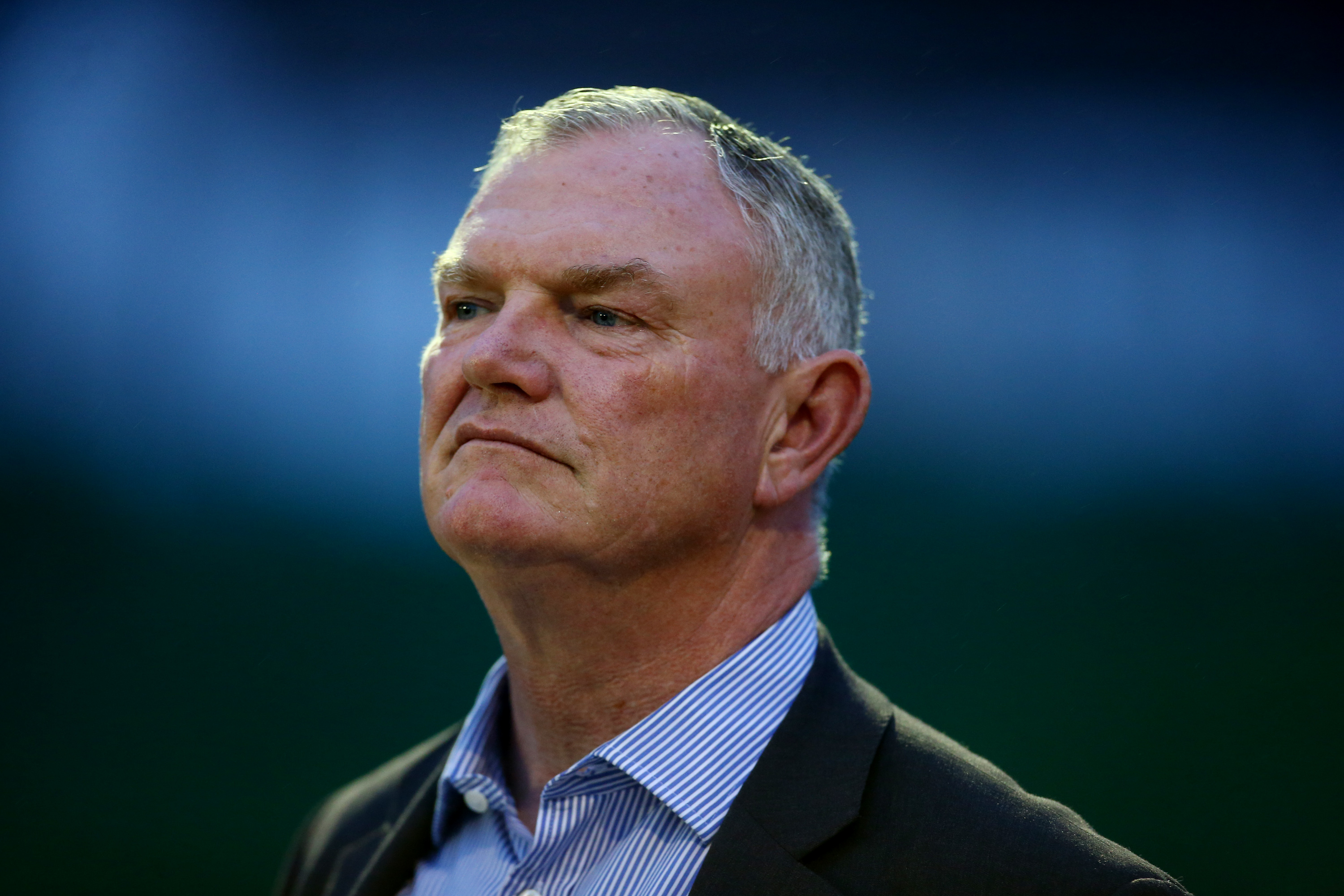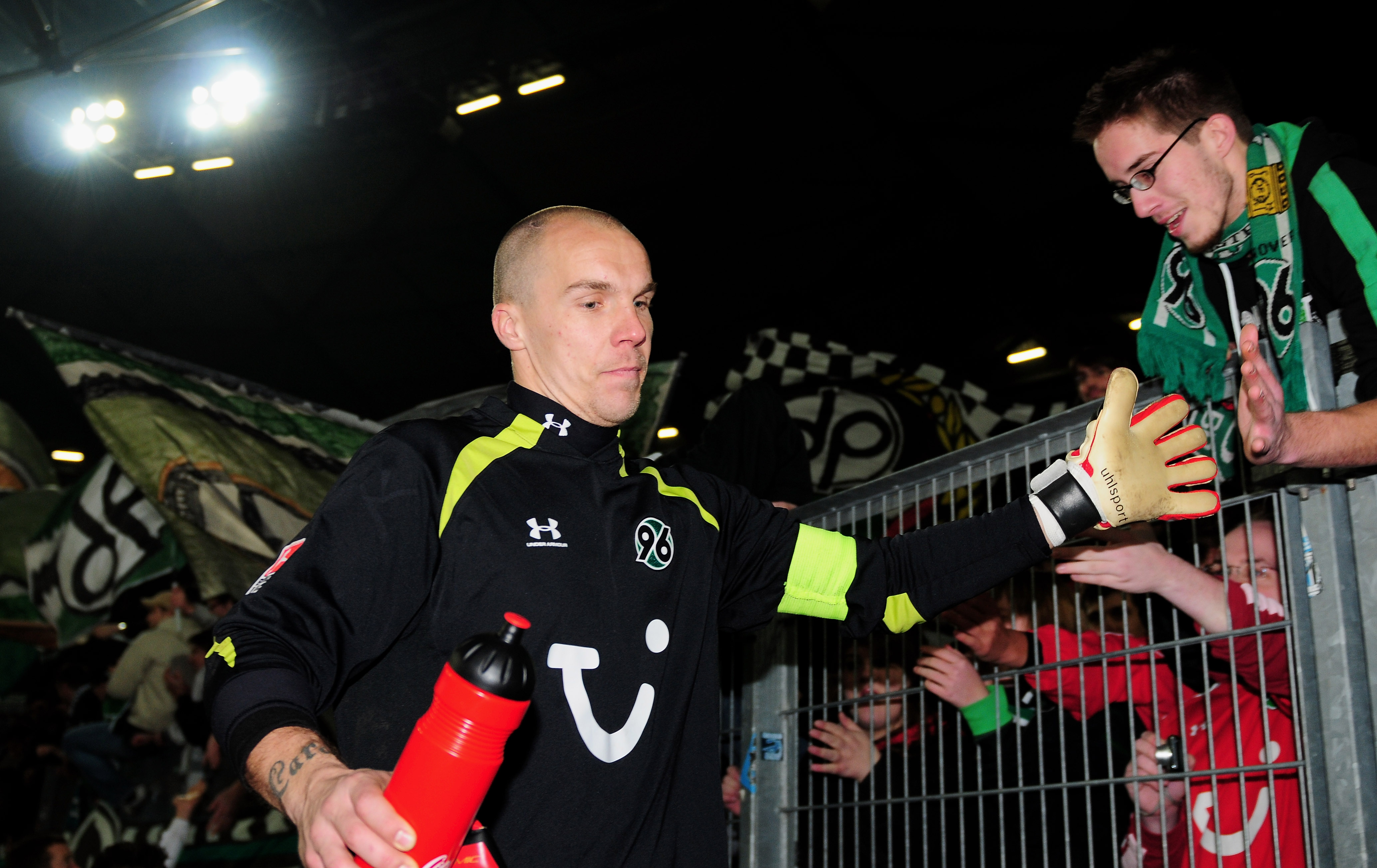The English Football Association is launching an internal review into allegations of child abuse in their professional soccer clubs. This comes after several former players — Andy Woodward, David White, Steve Walters, and Paul Stewart — waived their anonymity rights and told the British media stories of their abuse at the hands of men who had been entrusted with their athletic development and safety.
Woodward was first to speak on being abused by convicted rapist Barry Bennell while playing for Crewe Alexandra football club in the 1980s and ‘90s. Bennell was sentenced to nine years in prison in 1998 for sexually abusing children and new allegations have led to him being charged with eight more offenses. Woodward testified in that court case.
White then came out with his own story: “Given recent press stories,” he said, “I wish to confirm that I was sexually abused by my former football coach Barry Bennell in the late ‘70s and early ‘80s — this abuse took place while I was attached to Whitehill FC Junior team based in Manchester.”
Walters was also one, of many, of Bennell’s victims: “I just had to pretend it never happened and block it out,” he said. “I knew it could never come out and I was absolutely petrified because I thought that, if it did ever come out, that would be it for my career — finished. In my mind, I wouldn’t even be able to go out, never mind play football. And football was my dream. It was my life.”
Before the football world even had time to settle with these revelations, or relegate it to just isolated incidents at Crewe, Stewart reported that he was abused, as well. His situation happened far from Crewe and at the hands of a man who wasn’t Bennell.
“One day, travelling in the car, he started to touch me,” he recalled. “It frightened me to death, I did not know what to do, I tried to tell my parents not to let him in but I was only 11.”
And there’s more. Within two hours of setting up a hotline for abused players, the National Society for the Prevention of Cruelty to Children reported that it received more than 50 calls. A police force near Manchester and Crewe also reported that 11 former soccer players had contacted them and allegations were made against more than one individual.
The National Society for the Prevention of Cruelty to Children acknowledged the stigma that makes it difficult for victims to come forward before, stating: “Football locker rooms and clubs are traditionally very masculine and male environments. This means it can be difficult for players to talk about issues such as sexuality or abuse.”

Photo by Jordan Mansfield/Getty Images
FA Chairman Greg Clarke has pledged his support to the victims and has made it a mission to make sure each allegation is investigated alongside the police. Gordon Taylor, chief executive of the Professional Footballers’ Association, echoed Clarke’s sentiments in an interview with Reuters, stating that “the police need to be at the vanguard of investigations, because these are criminal acts; but soccer has a duty of care and must also grasp the nettle and take responsibility.”
As a community composed of an incredible diversity of humans that are fans, players, and administrators, soccer has this same obligation away from the game. Soccer has a duty of care. That statement should always immediately follow any labeling of the sport as the beautiful game.
Soccer is the sport of the world, and thus it includes so many different demographics that it would be exhaustive to list. The fact that it allows easy participation and enjoyment by everyone is its greatest attraction. It’s not the otherworldly skill shown at the highest levels that make it fun, but that it’s a shared language. That a ball and two makeshift goalposts are all you need to have a common bond with anyone. That’s what makes it the beautiful game.
The humanity of this soccer community is responsible for human lives. For the protection of children and adults who play the sport. For the well-being of their mental and physical health, before, during, and after their professional careers. We have a duty to listen and acknowledge victims and to help them in whatever way possible. And to make the game as uncomfortable as possible for abusers of any kind. A big part of that is in being open and comforting.
For instance, the soccer community was phenomenal in responding to the Syrian Refugee crisis, actually living up to its beautiful billing and showed how powerful and compassionate it can be. But that was a very tangible issue, most of the other problems aren’t that solid.
That’s where legislation comes in. Though we still have a long way to go, laws and punishments against abuses like racism and homophobia have helped us to move forward towards a safer community. These laws outline what the game is for and the abuses that it’s against. Initiatives like hotlines and therapy options provided by leagues and teams have also gone some way to comfort those suffering from mental illness. And most likely they will do good for these players who have been sexually abused.
But sometimes (even regularly), after initial public support for victims, denunciations of the abusers and completed investigations — when we need to push forward and become active, to continue our duty to make every aspect of soccer as beautiful as we proclaim, make it inclusive and safe — we falter.
We go past the repulsion and love and then we forget. We fall back into remedial thinking, allowing the stigmas around things like sexual abuse and mental health to silence victims. And, sometimes, players who come forward and seek help, feel ostracized.

Photo by Stuart Franklin/Bongarts/Getty Images
After, the soccer world swore to do everything to prevent another situation like that. That same year, Andreas Bierrman revealed he suffered from depression and sought treatment. But soon after his contract with St. Pauli wasn’t extended nor was he wanted anywhere else. He was forced into retirement at 29 and took his life at 33.
Before his suicide, Bierrman expressed his frustrations at the lack of support shown to him and his regret at ever coming forward with his depression: “If any footballers out there are suffering from depressions I’ll advise them to keep it for themselves.”
That can’t happen again, give our duty of care. No more empty gestures. No more cowardice. We can’t shun those that ask for help, and we can’t allow an environment that forces others to keep silent.
We have to be quick to denounce idiots like Eric Bristow, who are brazen enough to suggest that the players who were abused are not “proper men” because they didn’t go back to fight their abusers. That the shame should be on the victims.
The stigmas, forgetfulness, and rationalizing of the abuse happening only to small groups, or only being done by a few, only empowers the abusers. And it turns our ideal of the sport as a unifying force into a sick joke.



